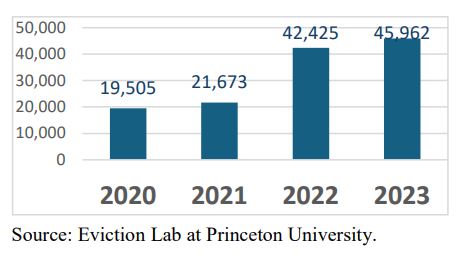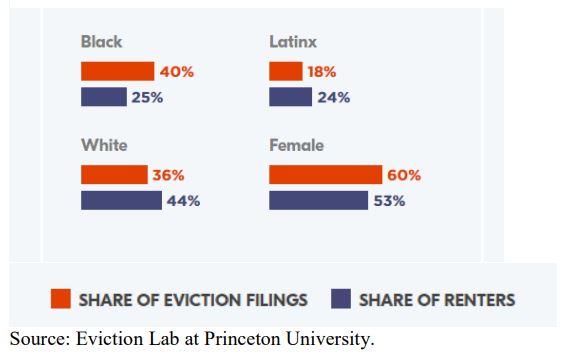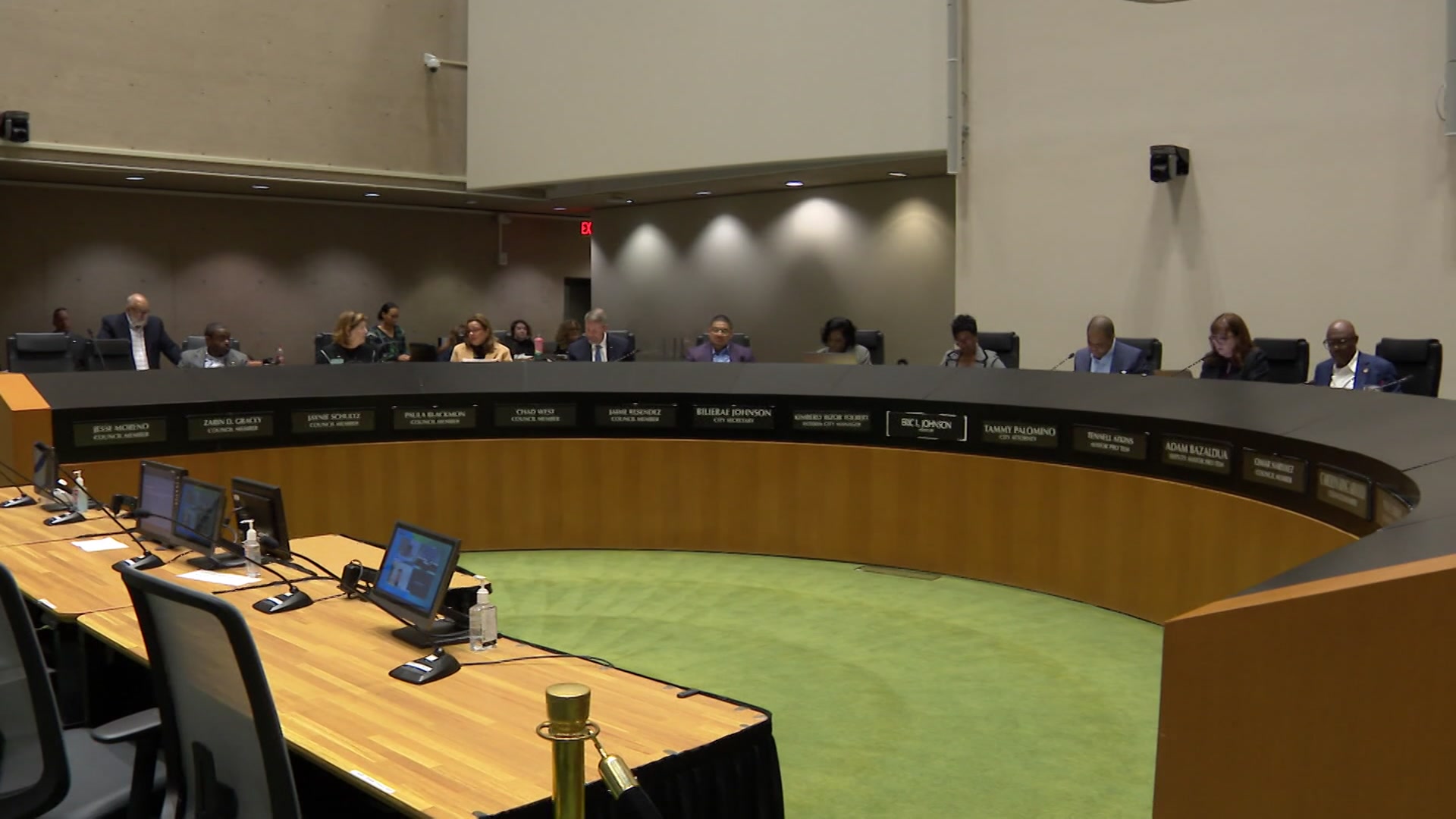A new report by Fort Worth city staff found that the city faces a growing eviction problem.
The informal report was provided to city council members ahead of Tuesday's work session. It showed eviction filings have increased since 2020.
The report found that in 2023, there were nearly 46,000 eviction filings, more than Austin and Dallas, which both have bigger populations.
The number of evictions nearly doubled between 2021 and 2022, the report stated, after the federal eviction moratorium ended, and emergency rental funds were reduced.
Get top local stories in DFW delivered to you every morning. Sign up for NBC DFW's News Headlines newsletter.

It also found that while Houston's eviction numbers are the highest in the state, their rate is 10 percent, which is similar to Fort Worth's rate of 10.4%.
Lauren King, Tarrant County Homeless Coalition executive director, said the cost of living is also increasing.
Local
The latest news from around North Texas.
“When you combine, increase cost of food, transportation, housing, all those things together, people just cannot make it work, anymore," she said.
She and her team compile a list of evictions every week, based on their past clients and eviction filings.
“Every week, we see between 600 and 1,100 households who are being evicted, or who are being filed on for eviction," King said.
They reach out to those former clients and try to help them stay housed by helping mediate.
The Coalition also has a landlord engagement program, where they help renters stay housed.
“Making sure that there are landlords there who are willing to give people a second chance at home is really important," she said, adding that landlords can sign up to be part of the program.
King explained that being evicted doesn't necessarily mean someone will become homeless.
“Eviction doesn’t equal homelessness, thank goodness, because we evict about 40,000 households a year as a county and, to give you an idea, total, in 2023, about 5,800 households experienced homelessness," she said.
But among those who experience homelessness, evictions are a common history.
“About 75% of our population reports that they have had an eviction within the last 12 months," King said. "We often see that once people get evicted, they bounce around for quite a while and then once they run out of support, they usually will end up with us.”
Fort Worth's report used Princeton University's Eviction Lab data to find that the city also has demographic disparities when it comes to evictions. It shows that black renters and female renters face a disproportionate share of eviction filings, compared to the share they make up of the city's renters.

Brittany Johnson is a face to those statistics. She found herself struggling after having her third child in 2022 and needing double surgeries.
“When I got home, it was everything on me. So, it was tough trying to maintain bills, take care of my family, take care of myself," she said.
Johnson didn't have a family to rely on for help.
“I don’t have a mother, she passed when I was 19. My father, he’s an old guy," she said. "So it was like, ‘I’m all alone.'”
Eventually, the single mom couldn't manage working her overnight job and taking care of her three children all day.
“I got tired out. I was overwhelmed, stressed out, and my body was exhausted," she said.
With no job, she tried her best to stay afloat, applying for assistance that was slow to arrive, and reasoning with her landlord. But rent was increasing and she didn't have another job.
In January, she got her eviction notice.
After staying with friends for a little while, she arrived at the Morris Foundation Family Services Center, a shelter in Fort Worth.
“I want the best, not just for myself, for my kids, to set examples for them, as well. To overcome these challenges," Johnson said.
She now has a housing voucher and is hoping to find a new home soon and put this difficult chapter behind her.
Fort Worth's report outlines possible programs and policies to push back on the growing eviction problem.
One is to provide an attorney for low-income neighbors facing eviction.
The report points to New York, where a rule enacted there led to a decline in evictions by 24%. They also point to data from Dallas, which found that people with legal representation won their eviction cases 90% of the time. Without a lawyer, they won less than 20% of the time.
"Cities where there [are] attorneys that are able to provide the kind of services that Legal Aid and similar organizations are able to provide, it impacts the eviction rates, it absolutely does," said Farwah Raza, supervising attorney at the home preservation project for Legal Aid Northwest Texas.
Fort Worth staff highlighted LANWT as a resource for neighbors.
Raza said they try to be at eviction hearings to offer help, but judges have discretion on who is in their courtroom.
"It's been difficult for us to continue to do that in Tarrant County, there's definitely been more resistance there than it has been in Dallas County," she said.
She said judges also have discretion on how to interpret state code, which can contribute to why smaller cities can see higher eviction rates than larger ones.
Fort Worth is also considering increasing eviction filing fees for landlords, and increasing the supply of affordable housing so more people can find rent that works for them.



